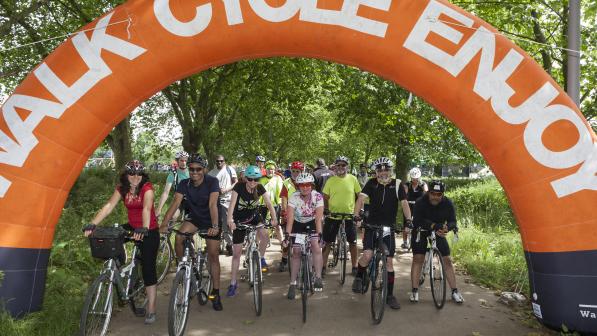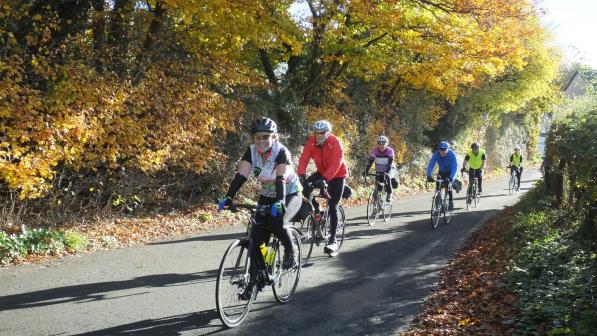What is an audax and how to get involved?

The term "audax" is derived from Latin, meaning "bold" or "courageous," reflecting the challenging nature of these events.
Originating in France, audax events (also called brevets) are characterised by their emphasis on endurance and self-sufficiency. Riders must complete a set route within a specified time limit, but the focus is on the journey and personal achievement. A brevet is not a race, and participants aren't competing against each other. This is highlighted in the fact that no completion order is published at the end of an event – instead, completions are posted alphabetically.

Key features of audax rides
Distance and time limits
Audax rides (brevets) typically range from 200 km to 1,200 km or more. However, there are shorter events that follow a course of 50, 100, 150 km. These shorter events are called "brevet populaire".
Each distance has a corresponding time limit, calculated at a pace of approximately 15 km/h to 30 km/h, depending on the event.
200 km = 13.5 hour limit
300 km = 20 hour limit
400 km = 27 hour limit
600 km = 40 hour limit
1,000 km = 75 hour limit (3 days & 3 hours)
1,200 km = 90 hour limit (3 days & 18 hours)
Controls
At the beginning of an event, riders get a passport type card called a 'brevet card', which becomes their 'proof of passage' showing that they've completed the entire course. Along the route, there are checkpoints known as "controls", where riders must get their brevet cards stamped to prove they have followed the designated path and to ensure they complete the ride within the time limit.
Self-sufficiency
Riders are expected to be largely self-sufficient, carrying their own food, water, spare clothing and repair kits/tools. Assistance from support vehicles is generally not allowed.
Route navigation
Navigation is typically done using route sheets or GPS devices. Riders must be prepared to navigate independently, as routes can cover remote and challenging terrain.
Community and spirit
The spirit of audax cycling is one of mutual support and friendship. Riders often form groups and support each other through the challenges of the ride.

Getting involved in audax cycling
Join a club
The best way to get started is by joining a local audax club. These clubs often organise regular rides, provide support for new riders, and offer a wealth of knowledge about the sport. The Audax Club Parisien (ACP) is the governing body for audax events worldwide, with Audax UK being the cycling club that oversees audax events in the UK.
Start small
If you’re new to long-distance cycling, start with shorter audax events, such as a 200 km brevet, to build your endurance and confidence. These shorter events will help you understand the demands of audax cycling and prepare for longer distances.
Training
Consistent training is crucial. Focus on building your endurance through long rides, and practise cycling in various weather conditions and terrains. Strength training and flexibility exercises can also help prevent injuries and improve overall performance.
Equipment
Any type of cycle is acceptable for audaxing, with the only rule being that it must be powered solely by the human rider.
Invest in a reliable bike suited for long distances, with a comfortable saddle and handlebars. Equip your bike with essentials such as lights, a repair kit, a first aid kit, and a GPS device for navigation.
Plan and prepare
Thoroughly plan your rides, including understanding the route, weather conditions, and the locations of controls. Prepare your food to give you the best nutrition and help you maintain energy levels during the ride.
Ride brevets
Participate in officially sanctioned brevet rides to gain experience. These rides will help you qualify for longer and more prestigious events, such as the Paris-Brest-Paris (PBP), a 1,200 km audax event held every four years.




